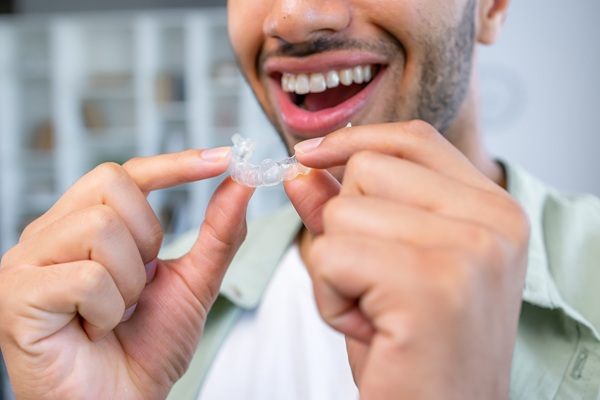Orthognathic SurgeryGranite Falls, NC
While braces can correct the alignment of the teeth, some patients may need treatment to correct the alignment and position of the jaw. We can help determine if orthognathic surgery is the treatment option you or a loved one needs during a consultation. Orthognathic surgery helps to correct alignment issues that braces alone, or other orthodontic treatment options, are not able to treat.
Orthognathic surgery can help patients in Granite Falls, and the surrounding area, receive the jaw treatment they need. Dr. Gregory K. Shell can help patients determine if they need jaw surgery and work with the proper medical professionals to devise an effective treatment plan.
Call us at 828-386-9811 to learn more about this procedure and schedule an appointment.
Why Orthognathic Surgery is Necessary
While the causes of jaw problems and misalignment can vary per patient, it is crucial to seek the proper treatment for the condition. Jaw issues can lead to difficulty when biting, chewing, and swallowing food, as well as speaking. The Mayo Clinic states that people who may benefit from jaw surgery may be struggling with issues such as:
- Bite issues including underbite, crossbite, or overbite
- Inability to fully close one’s lips over their teeth
- Symptoms of temporomandibular joint disorder
- Injuries to the face or birth defects
- Speech difficulty due to issues with the jaw
With orthognathic surgery, it is possible to address and resolve these issues. We will take the time to evaluate a patient’s symptoms and condition before determining if surgery is the most effective route for treatment. If the patient is struggling with these issues and other non-surgical treatment options are ineffective, then surgery may be necessary.
The Orthognathic Surgical Process
During the initial examination, we will review the patient’s medical history and current condition. If the patient has a history of struggling with these oral health issues, then orthognathic surgery may be the next step. We will also go over allergies, insurance, and any other pertinent factors with the patient. The surgical process will involve several steps.
Examination and Diagnosis
Along with reviewing the patient’s history of any previous oral health issues, we will also review the treatment options that were not successful in the past. In some cases, this surgery can help with the appearance of one’s jaw and facial structure, as well.
If the patient is a candidate for orthognathic surgery, then we will begin to develop a customized treatment plan.
Customized Treatment Plan
In most cases, patients will need to wear braces before and after the surgery. Thus, we will need to plan out the treatment plan with any dentists and oral and maxillofacial surgeons involved. Our team can help to ensure the braces treatment goes smoothly before the surgery takes place. Following the surgery itself, we will then need to place braces back on the patient’s teeth.
We will also help guides the patient through the recovery process and schedule regular checkups to ensure the patient is on the right track for recovery.
The Surgery
The length of time for the surgery can take anywhere from one or t2o hours to between three and five hours. This will depend entirely on the reason for surgery, the steps necessary in the surgery, and the complexity of the condition. Before the surgery, we will remove the braces from the patient’s teeth. The patient will have already met with the surgeon and reviewed the details of the procedure. Thus, they will be ready for the surgery on the scheduled day.
The specific type of orthognathic surgical procedure the patient needs will depend on the issue. Following the surgery, we will need to replace the braces onto the teeth and continue monitoring the teeth over time.
Recovery and Follow-Up Appointments
The patient will need time to wake up following the procedure and have a method of transportation set up to take them home. While there may be some pain following the surgery, we can help to go over methods for relieving said pain. Following the surgery, we will need to attach the braces back onto the patient’s teeth and continue with the braces treatment schedule set up before.
The patient will need to be mindful of eating specific foods, which we can go over in greater detail during an appointment and consultation.
Call Us Today
To learn if you are a candidate for orthognathic surgery and if it is the right treatment for your needs, call us at 828-386-9811 to schedule an appointment today.
Dr. Gregory K Shell is located at
4558 Hickory Blvd
Granite Falls, NC
28630
Frequently Asked Questions
What is orthognathic surgery?
Orthognathic surgery is a combination of dental, orthodontic, and oral surgical procedures to help treat jaw alignment issues that non-surgical treatment options could not treat. It will typically involve the patient wearing braces before and after the surgery. We will work with each patient to ensure they receive the customized treatment they need.
How do I know if I need jaw surgery?
If you or a loved one experience difficulty biting, chewing, swallowing, speaking, or breathing, even after seeking non-surgical treatment, then orthognathic surgery may be necessary. In most cases, orthognathic surgery will only be in consideration after non-surgical options are ineffective. We can help you determine if surgery is the right treatment for your needs during an appointment.
How long will the surgery take?
The surgery can take anywhere from one or two hours to between three and five hours. The length of time will vary on the type of surgery and the complexity of the treatment. We can help determine the length of time during a consultation and when planning with the oral and maxillofacial surgeon.
How long will the recovery take?
The patient may feel some soreness in the days following the procedure. Part of the recovery process will involve placing braces back on the teeth. We can go over the details of the recovery process, possible food restrictions, and methods to relieve any pain in the jaw during a consultation.
If I already wear braces, will I need to have them removed for the surgery?
Yes. However, you will most likely wear braces before the procedure and wear the braces again after the procedure. We will work with your dentist to determine if this procedure is necessary and how to proceed.





